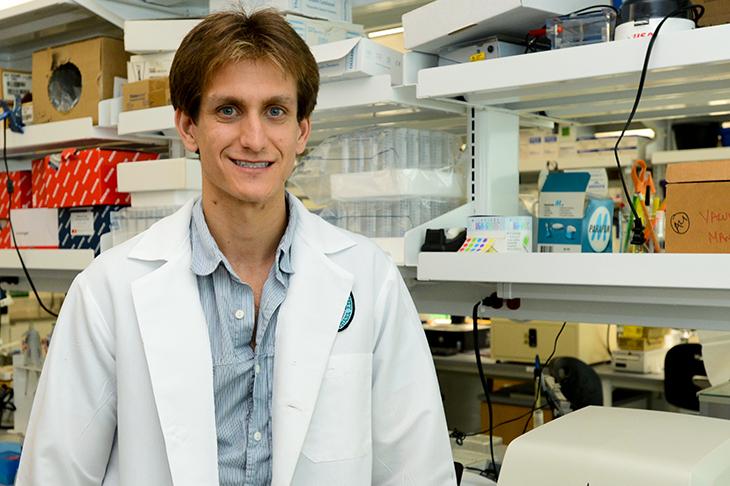Winner selected in first Novel Tech Challenge
A device to help regenerate an esophagus took home the top prize at the inaugural Novel Tech Challenge at Tulane University.
The winning entry will aid injuries caused by diseases such as cancer, says Derek Dashti, a doctoral student studying bioinnovation at Tulane. Dashti and his team WibiWorks engineered a tube containing therapeutic stem cells to regenerate a damaged esophagus.
Projects that were finalists at the event on April 17 were an engineered nipple, a rapid diagnostic platform for virus detection and an artificial colon.
The Novel Tech Challenge, funded by the Burton Morgan Foundation, asked students to come up with a solution for a real-world problem and build a prototype.
“As a professional in the venture capital and emerging technology industry, it is critical for universities to facilitate the development of "commercializable" technologies and to support their students and graduates in bringing those to market,” says Novel Tech judge Rusty Pickering, a 1991 Tulane engineering graduate. “The Novel Tech Challenge is exactly the kind of programming that can fulfill that mission and I am thrilled that Tulane is engaging in this way.”
Participants were given $1,000 to help build prototypes and received access to School of Science and Engineering equipment, along with guidance from an alumni mentor.
“The involvement of Tulane alumni as mentors was a major factor in making this challenge worthwhile as a learning experience for students,” says John Christie, executive director of the Tulane Office of Technology Transfer and Intellectual Property Development.
“One student told me that working with the alumni mentor was the most valuable part of the entire experience for him and his team, and the mentor went out of his way to help that team with their project.”
In addition to alumni, Tulane faculty volunteered time and resources to help the student teams. Christie says that the impact of both the alumni support and faculty resources was evident from the very beginning and produced impressive technologies.

